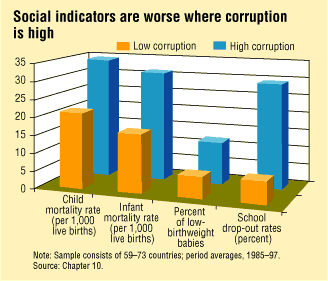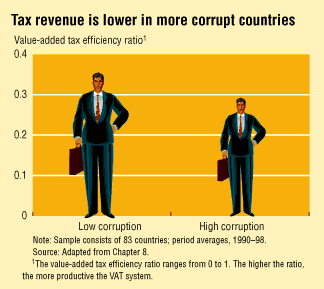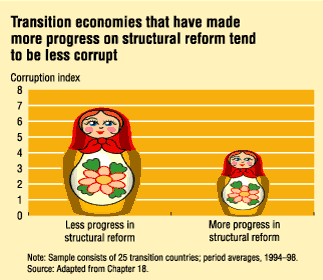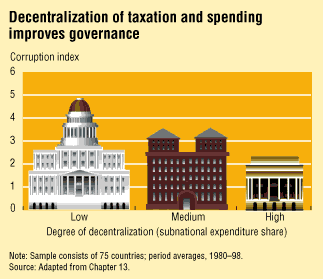 About F&D Subscribe Back Issues Write Us Copyright Information Free Email Notification Receive emails when we post new
items of interest to you. |
Picture This How corruption holds countries back Widespread corruption and poor governance are serious problems in many countries. They cut into government revenues and lead to wasteful spending, thereby weakening a country's economy and eroding the public's confidence in its institutions and policies. The IMF has been promoting good governance in member countries by supporting economic policies and structural reforms that limit the scope for siphoning off funds, pushing for transparency in public sector financial transactions, providing technical assistance to improve public resource management, and conducting policy research. A book recently published by the IMF includes staff studies on the impact of corruption on economic performance. Some of the notable findings of the book (Governance, Corruption, and Economic Performance, edited by George T. Abed and Sanjeev Gupta, 2002) are presented here. 




|